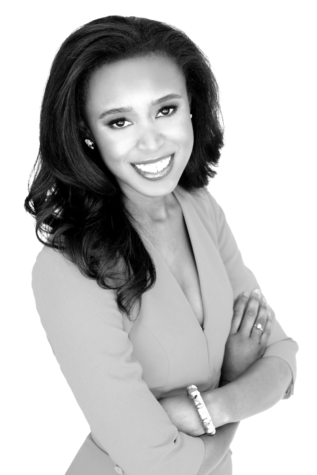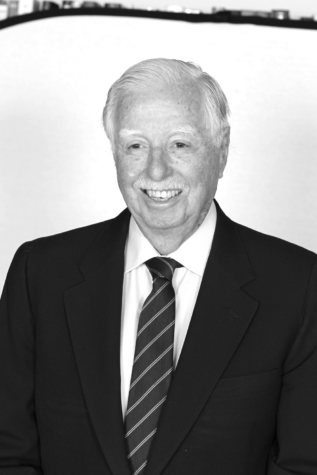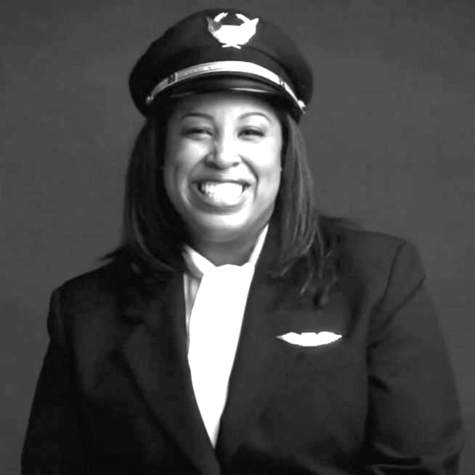Tradition of Excellence award recipients Q&A
November 22, 2019
The annual Tradition of Excellence assembly gives OPRF alumni a chance to speak about their accomplishments and experiences. This year, entrepreneur Maci Peterson Philitas, lawyer Howard Willens, and pilot Nia Wordlaw took the stage to share their stories.
However, the period-long assembly rarely offers a complete look into an honoree’s life. To understand more about these incredible people, we sent each honoree questions not covered in their presentation.
————————————————————————–
Maci Peterson Philitas:

Q: When in your life did you first decide you wanted to be an entrepreneur?
A: “I think in many ways I’ve always been an entrepreneur. As a child, I’d “start businesses” and find ways to make money when I was bored. My cousin and I did everything from setting up a lemonade stand on the front lawn and a car wash in the driveway of my parents’ house on Woodbine Avenue, to making and selling friendship bracelets to my friends while we’d hang out at Field Center.”
Q: What do you feel is your greatest personal triumph so far in life?
A: “My greatest triumph in life so far is learning how to practice living with a spirit of abundance. When I learned and truly began to understand that there is more than enough of every good thing to go around, I unlocked the ability to help people to the best of my ability because I know that what God has for me is for me and nothing can change that.”
Q: What goals do you have for On Second Thought going forward?
A: “Our goal is to be ubiquitous. We want our technology to help you fix your mistakes in the digital platforms you use every day. Our other goal is to help you say what you mean, exactly how you meant to say it so that nothing gets lost in translation again.”
————————————————————————–
Howard Willens:

Q: Was your work as the executive director of the President’s Commission on Crime in the District of Columbia more of a policy role, a legal role, or something else entirely?
A: “The Executive Director of a commission like the DC Crime Commission is hired by members of the Commission to do most of the hard work, subject to approval by Commission members — eg. hire the staff, define the work that needs to be done, collect facts, studies, and witnesses that might help shaping alternatives for members to address, and write the final report. This job was supposed to take one year; it took 16 months, ending in late December 1966 — just days before I joined a Washington law firm. It was an extremely difficult, and visible, assignment; we had to examine and, if necessary, propose changes in every segment of the criminal justice system in Washington, DC.”
Q: You represented the North Marianas Islands in negotiations to obtain commonwealth status with the United States. How did you come into that role? What was that process like?
A: “Regarding the Northern Marianas, I received a letter in the early summer of 1972 from a young (31) lawyer in Saipan, which was the major town in the 14-island chain south of Japan. He told me he was the chairman of a 15-person political status commission and was looking for a lawyer (or firm) to represent the commission in negotiations with the United States regarding the future status of the islands under US sovereignty.
“The constitution that emerged from the convention was voted on in 1977 after a vigorous campaign. As a result, the Northern Marianas is the only insular area able to convene a constitutional convention and produce a constitution that won the support of the people. My team and I take some considerable pride in this outcome.”
Q: What advice do you have for students?
A: “Ambition is understandable but it should never override your integrity.”
————————————————————————–
Nia Wordlaw:

Q: In the assembly, you spoke about how meeting your mentor at the funeral of another African-American, femalepilot inspired you to pursue your dream of becoming a pilot. What steps did you take after that? How did you work to become a pilot after leaving high school?
A: “After graduating from OPRF, I attended Lewis University and majored in Aviation Flight. Then, at 18 years old, after my first year of college and earning my private pilot’s license, I took a semester off and enlisted in the Illinois Air National Guard. As a service member, I received college tuition assistance, so I resumed my studies at Southern Illinois University at Carbondale (SIUC), where I graduated in 1997 with a bachelor’s degree in aviation management and an associate’s degree in aviation flight. After graduating from SIUC, I became a flight instructor and taught others how to fly, and continued to build flight time and experience as a traffic patrol pilot, regional airline pilot, and finally landing my dream job as a United Airlines pilot at 29 years old.”
Q: What’s one of the most interesting places you’ve been to?
A: “I’ve been many places, and still have many more places to see, but to date the most interesting place I’ve been is Lagos, Nigeria. It was interesting to me because it was the first time I saw people of color being represented everywhere… on every TV advertisement, from banking to technology companies, as owners and managers of hotels, and every position at the airport. If you are accustomed to seeing yourself reflected everywhere daily, you probably would not find this very interesting.”
Q: What is the greatest challenge you’ve ever faced in life? How did you overcome it?
A: “The greatest challenge I faced was dealing with the emotional trauma of being an eyewitness to the 9/11 World Trade Center attacks while operating a passenger flight. I am not sure if anyone who was an eyewitness to these terrorist attacks can truly “overcome” it, but through counseling and therapy, I was able to work through the pain and fear so it no longer overpowered me.”
Q: What singular event, person, or accomplishment are you most proud of?
A: “I hope this will not be the last proud accomplishment in life, but to date, I am proud to have started the nonprofit organization, Sisters of the Skies, Inc., which has garnered international attention for our work to expose young black and brown girls to careers as pilots.”
